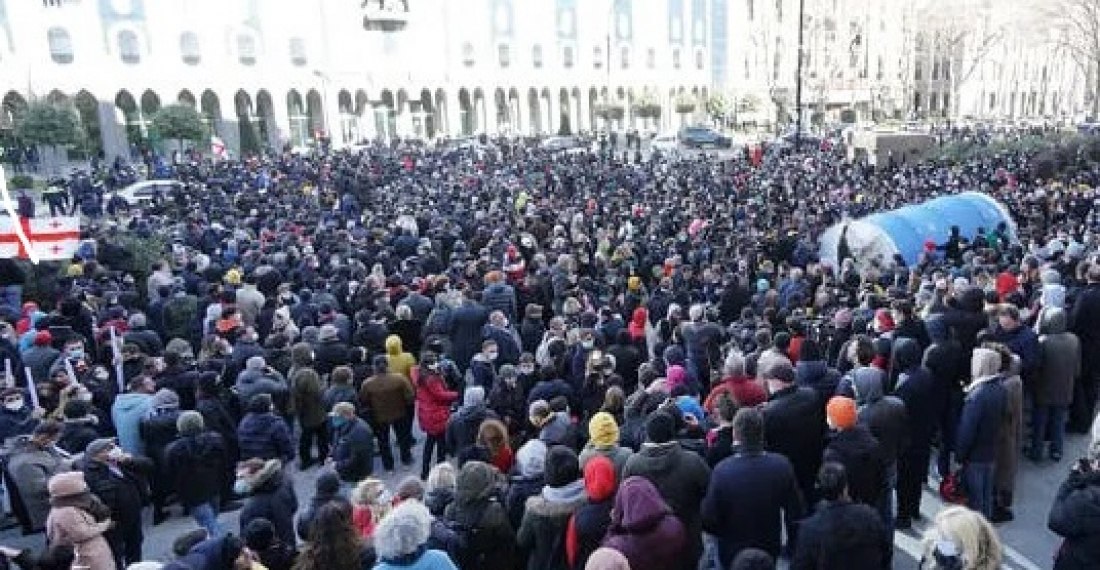Updated
Opposition supporters have been protesting in the Georgian capital Tbilisi after Georgian special police forces this morning stormed the headquarters of the main opposition party – the United National Movement (UNM) – and arrested its Chairman, Nika Melia.
Thousands of demonstrators gathered in front of the main government building this afternoon to protest against the arrest. They later moved to the nearby Parliament building on Rustaveli avenue.
Diplomats and foreign personalities have condemned this morning's operation and called it a step back for Georgia's democratic transition and Euro-Atlantic aspirations.
A statement posted on the website of the US Embassy in Tbilisi said
The United States Embassy is deeply concerned by the government’s decision to detain the head of a major opposition political party at the party’s headquarters this morning. We regret that the call of the United States and other international partners for restraint and dialogue was ignored. We are dismayed by the polarizing rhetoric from Georgia’s leadership at a time of crisis. Force and aggression are not the solution to resolving Georgia’s political differences. Today, Georgia has moved backward on its path toward becoming a stronger democracy in the Euro-Atlantic family of nations.
_______________
Georgian special police forces on Tuesday morning (23 February) stormed the headquarters of the main opposition party – the United National Movement (UNM) –and arrested its Chairman, Nika Melia.
Unconfirmed reports say tear gas and pepper spray was used during the operation as Melia supporters and UNM officials tried to prevent the arrest.
Police were executing a controversial court order after Melia had refused to paid bail following a previous case.
There are reports of clashes between opposition supporters and police during and after the arrest.
The arrest of Melia is expected to exacerbate an already difficult and tense political situation in the country resulting from an opposition boycott of parliament following claims of fraud in parliamentary elections last October. Last week Georgia's prime minister, Giorgi Gakharia resigned after refusing to carry out the arrest, saying it was untimely. A new prime minister, Irakli Gharibashvili, was formally approved by parliament on Monday (22 February)






